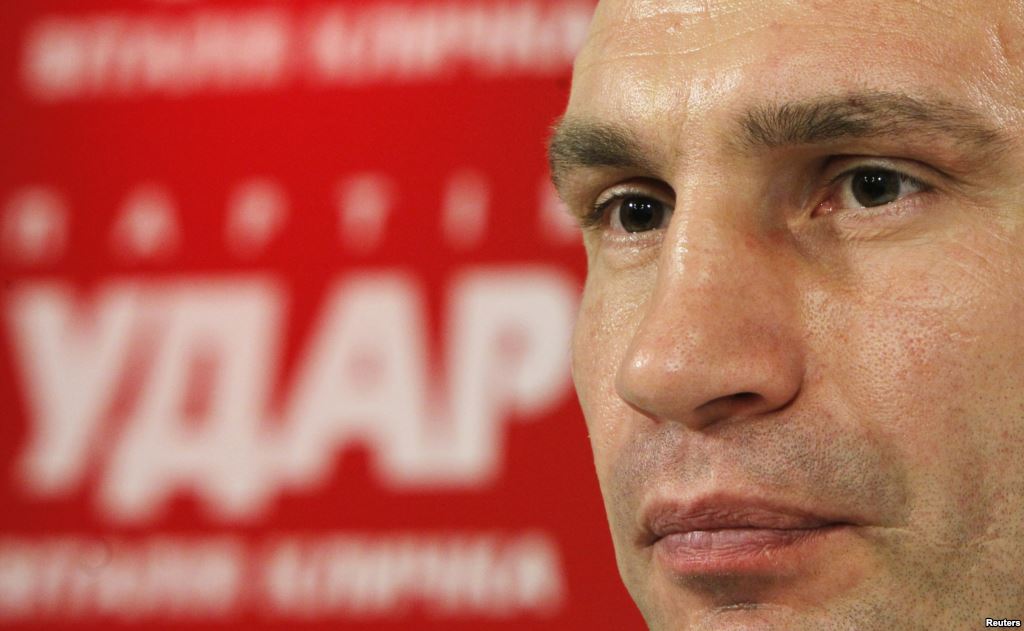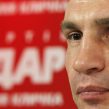
Boxing Champion Likely to Challenge Incumbent in 2015 Ukrainian Presidential Election
Publication: Eurasia Daily Monitor Volume: 10 Issue: 126
By:

The world heavyweight boxing champion, Vitaly Klichko, may become the strongest challenger to the incumbent President Viktor Yanukovych in the presidential election scheduled for early 2015, recent opinion polls show. If his popularity stands the test of time, Ukraine may, for the first time, elect a president who became popular long before he came into politics, who is multilingual and decidedly pro-Western. However, to reach that point, Klichko will have to convince opposition-minded Ukrainians that he is their best candidate.
While Yanukovych’s most outspoken critic, former Prime Minister Yulia Tymoshenko, remains behind bars, jailed for abuse of office in preparing controversial gas contracts with the Russian energy giant Gazprom in 2009, Klichko’s popularity as an opposition leader has been rapidly rising. In December 2012, the pollsters Razumkov, Democratic Initiatives and Sofia indicated he enjoyed 12–16 percent support among the Ukrainian public, against Yanukovych’s 23–26 percent (Ukrainski Novyny, December 27, 2012; Interfax-Ukraine, December 25, 2012). But already in May 2013, GfK was the first pollster to claim that Klichko was on a par with Yanukovych, each having 16 percent (gfk.ua, May 20). In Razumkov’s poll, Klichko was five percentage points behind Yanukovych but three points ahead of Tymoshenko (Ukrainska Pravda, May 21). Later on, the Kyiv International Institute of Sociology (KIIS) claimed that Klichko overtook Yanukovych with 16 percent against 14 percent, followed by Fatherland party parliament faction leader Arseny Yatsenyuk with 10 percent (Interfax-Ukraine, June 17). However, SOCIS found that in late May Klichko was still behind Yanukovych, with 16 percent against 18 percent, followed by Yatsenyuk with 10 percent (Ukrainska Pravda, June 19). Like most other pollsters, KIIS and SOCIS did not include Tymoshenko on their lists. As a convict, she is not allowed to run for president according to the law.
Klichko entered politics in the wake of the “Orange Revolution” of November–December 2004, a peaceful popular uprising in Kyiv that was prompted by the then government’s attempts to rig a presidential election. The nationalist pro-Western former banker Viktor Yushchenko, who eventually won the election, chose Klichko as an advisor after the latter had just become world boxing champion. Klichko lost mayoral elections in Kyiv in 2006 and 2008, but was elected to the city council and became the leader of his own party there. Last year, his party Punch (Udar in Ukrainian and Russian; interestingly, many Ukrainians do not realize that this is an abbreviation for the Ukrainian Democratic Alliance for Reforms) came up from obscurity to surprisingly finish third in the parliamentary race. Furthermore, several weeks before the election, opinion polls predicted that Punch might come in second ahead of Fatherland, the party headed by Tymoshenko.
Klichko claimed that his party would have fared better if other opposition parties had not campaigned against it (Interfax-Ukraine, September 6, 2012). Klichko was indeed attacked from both sides: while Yanukovych’s Party of Regions and the Communists portrayed him as too nationalist and too pro-Western, rivals from the opposition camp, especially after his refusal to build a coalition with Fatherland and the far-right Freedom party, dropped hints about his links to the hateful oligarchs and claimed that once in parliament, his team would join the government. Both camps tried to exploit Klichko’s apparent failure to articulate his goals and his reluctance to take a stance on such controversial issues as the Russian language and mass anti-government protests.
However, this apparent indecisiveness and lack of ideology may be an asset in a country deeply divided along cultural and linguistic lines and mistrustful of career politicians. Unlike his main rivals—Yanukovych, Tymoshenko and Arseniy Yatsenyuk, whose own party, Front of Change, recently merged with Fatherland—Klichko has never served in the government so he is not associated with the kleptocratic ruling elite. As he himself put it, as a renowned and rich sportsman he does not “need privileges, a salary, land or a bonus to [his] pension” (2000 newspaper, January 17).
Klichko is less radical than Fatherland, let alone Freedom. This may attract liberal and indecisive voters both in eastern and western Ukraine. His other advantage is that, unlike Tymoshenko, Yanukovych or any other Ukrainian president before Yanukovych, Klichko can speak with Western politicians in their languages, English and German. Also, though born a Russophone, Klichko has made great strides in learning Ukrainian. While he barely spoke a word in Ukrainian when he entered politics, now Klichko prefers this language to Russian when in public. As a boxer, Klichko lived in Germany for many years since 1996 when he was very young. This most likely influenced his views and culture, probably making him more easily understood in the West than Yushchenko, Tymoshenko or Yanukovych who have often been viewed as unpredictable.
Klichko does have weaknesses. He is apparently not strong in economics, and despite his multilingualism, he often comes off as tongue-tied. Also, he does not have a stable electoral base as his party’s voters tend to be either those who were disappointed with other parties or those who are apolitical and inclined to vote for a celebrity—especially the younger generation. This makes him vulnerable to low voter turnouts, as the parliamentary election showed last year. Still, Klichko now has a year and a half ahead of him to overcome his weaknesses and build on his strengths.




